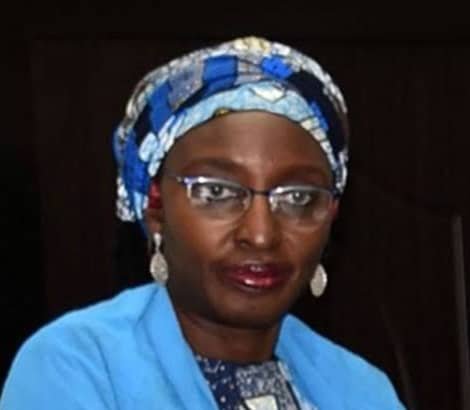By Franca Ofili
Mrs Kachollom Daju, Permanent Secretary, Ministry of Health, says there is an urgent need to address the healthcare services of the elderly in the country.
Daju said this in Abuja on Monday at the National Summit on Healthy Ageing in Nigeria with theme as: “Decade of Healthy Ageing in Nigeria: Situation, Challenges and Transformative Pathway”.
According to her, the government has created national committee to address issues faced by the elderly.
“There is an urgent need to address the health needs of the elderly in the country and should be seen as a national priority,” Daju said.
According to her, the elderly have a lot to contribute to the social and economy of any nation if they are empowered and supported.
“Unfortunately the current health situation in Nigeria is not conducive for the elderly.
“We are faced with low government budgetary allocation, poor consultation and lack of skilled healthcare workers to cater for the elderly.
“The government allocates only five per cent of its budget to health in 2021compared to the 15 per cent that was declared at the Abuja declaration 2001,” she said.
According to her, most Nigerians do not have quality healthcare service especially in rural areas.
She advised that the government with stakeholder’s should strategise and develop proper healthcare plan for the elderly.
Dr Walter Mulombo, WHO representative in Nigeria, said that effective integrated community-based approaches (ICOPE) were critical to improving the lives of older persons in Nigeria.
Mulombo advocated for continued capacity-building; evidence-based guidance; support to connect, convene and exchange knowledge with relevant stakeholders.
“We need to have data and innovation at all levels to inform decision making and better coordination and serve as a tool to provide feedback to health service delivery managers,” he said.
According to him, coordination mechanisms should be strengthened to promote better outcomes for the decade through better healthy life expectancy; age-friendly cities and communities.
He said that such would reduce the number of older people who are care dependent.
Mulombo called on the government to exercise leadership and increase investment in human capital development to further strengthen partnership and prioritising for the decade of healthy ageing by focusing on improved engagement with older people.
He said that better understanding of older people needed developing and strengthening health and long-term care, specifically in communities.
Mulombo said that it would improve multi-sectoral action in aligning with the primary healthcare system approach.
“I reiterate WHO’s commitment to support and actively participate in this partnership journey towards achieving the desired outcomes in line with the UN resolution for decade of healthy ageing,” he said.
According to him, globally, there were 703 million persons aged 65 or over in 2019.
He said that over the next three decades, the number of older persons worldwide is projected to more than double, reaching more than 1.5 billion persons in 2050.
“Apart of Northern Africa and Asia, the second fastest increase is projected for sub-Saharan Africa, where the population aged 65 or over could grow from 32 million in 2019 to 101 million in 2050.
“Despite sparse data on older persons, Nigeria is not spared from these alarming figures with about 14.8 million aged 60 years and above.
“The strategy is at the centre of the SDGs, as ageing issues cut across the 17 goals, especially Goal 3 which aims to `ensure healthy lives and promote well-being of all at all ages’.
“Several studies assessing the Nigeria health system including the current global COVID-19 pandemic have further revealed a need for strengthening health systems at all levels to be responsive to older people,” he said. (NAN)(www.nannews.ng)
==================
Edited by Kabir Muhammad/Vivian Ihechu









